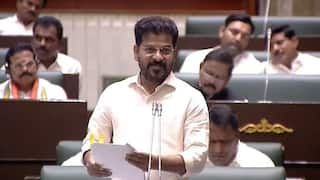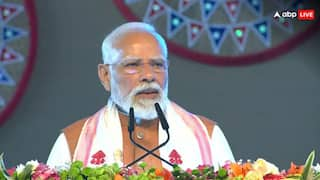Global News Organisations Seek Legal Protection Of Copyright Against Open AI Platforms
Media houses across the world are apprehensive of copyright infringement using AI. In abig move, these firms have now urged lawmakers across the world to frame rules to prevent this.

Leading news organisations from around the world joined hands to pen an open letter addressed to regulatory bodies and AI-focused tech companies, urging lawmakers worldwide to implement rules safeguarding copyright in the utilisation of news content for training generative AI models. These news entities are advocating for regulators to facilitate compensation to publishers for the AI-driven exploitation of their published news content by tech industry behemoths.
The open letter counts among its signatories Getty Images, Agence France-Presse, Associated Press, European Publishers’ Council, Gannett, Authors Guild, European Pressphoto Agency, National Press Photographers Association, News Media Alliance, and the National Writers Union.
Generative AI, a powerful artificial intelligence subfield capable of generating texts, images, and various other media forms, is at the centre of this copyright dispute. The primary concern revolves around Large Language Models (LLMs), a specific type of AI that is trained on publicly available news content from the internet.
What The Threat Is
Using these LLMs, generative AI has the capability to churn out a vast array of content for its clients. The expected transformative impact of LLMs on the global media industry, both in India and abroad, is anticipated to be profound, with these AI models potentially generating diverse forms of news content.
India's media industry is closely monitoring global developments as news organisations worldwide question the escalating trend of tech companies integrating published news content into their artificial intelligence models without obtaining explicit permission from publishers.
A spokesperson from the Digital News Publishers Association (DNPA) emphasized the need for India's media companies to consider the evolving landscape surrounding AI and LLMs. "We expect the upcoming Digital India Act and Competition Bill to address these copyright issues for the digital news media in the light of AI tools being used by Big Tech,” the spokesperson said.
AI In Indian Journalism
In India's journalism circles, the growing prominence of LLMs has become a significant topic of discussion. Some educational institutions have already introduced short courses on AI, featuring LLMs like ChatGPT in their study materials. OpenAI's ChatGPT has also found its way into India's journalism colleges, enhancing students' skills in news gathering, copywriting, and editing. In fact, some media houses in the country have even introduced AI news presenters.
Paul Fletcher, the former Australian Communications Minister known for piloting Australia's Media Bargaining Code in 2021, recently highlighted AI's role in the media industry during a webinar hosted by the Digital News Publishers Association (DNPA). He urged stakeholders in India's media industry to recognize AI as a crucial factor while striving to balance the publisher-platform relationship.
Publishers Want Partnerships
The open letter also calls for the establishment of a system that would enable publishers to negotiate deals with AI companies regarding the use of their news content. Some signatories have already entered into such agreements with AI firms, permitting them to utilize their published materials for training LLMs. One notable example is the Associated Press, which reached an agreement with ChatGPT-maker OpenAI to leverage its archive and generative AI to create news content.
In another significant development, OpenAI recently inked a $5 million agreement with the American Journalism Project, providing domestic news publishers greater access to the tech company's GPT-4-based API. Google is also exploring partnerships with news media companies, with its spokesperson Meghann Farnsworth expressing interest in providing AI-enabled tools to assist journalists in their work.
Mixed Reactions From Media Houses
Despite the push for collaboration, the global media industry remains divided regarding partnerships with Big Tech firms that utilize published news content for LLM training. News Corp CEO Robert Thomson expressed concerns about generative AI potentially undermining journalism and societal values.
The New York Times chose not to participate in negotiations with tech firms regarding news content usage for AI training, a stance seen as a setback to other publishers' efforts to collectively address Alphabet and Microsoft's AI use.
News Corp's Australia division is reportedly utilizing generative AI to produce 3,000 text news stories weekly. A dedicated team called 'Data Local' employs AI to generate bulk news reports on domestic developments.
Bloomberg has also joined the trend, launching its LLM called BloombergGPT, trained to analyze niche financial data and produce industry-specific content using a 345-billion token public dataset.






































